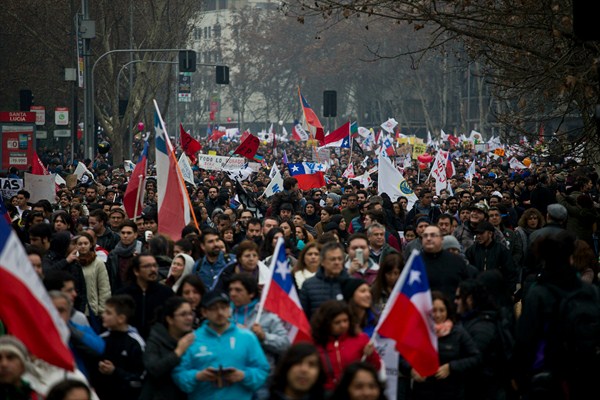Protesters have taken to the streets in Chile to demand that the country’s pension system, which was privatized in 1981 during the dictatorship of Augusto Pinochet, be reformed or scrapped all together. In an email interview, Jennifer Pribble, an associate professor of political science and international studies at the University of Richmond, discusses Chile’s pension system and the prospects for its reform.
WPR: How is Chile’s pension system currently organized, and what problems is it now facing?
Jennifer Pribble: In 1981, during Pinochet’s dictatorship, Chile privatized its pension system, eliminating the pay-as-you-go system for all except the military. Under the private system, workers contribute 10 percent of their earnings into an individual account, which is managed by a private pension fund administrator, or AFP. The law eliminated employer contributions and left AFPs virtually unregulated. Pinochet also instituted a system of social assistance pensions for workers whose contributions were nonexistent or insufficient, but the benefit was narrowly targeted, and many Chileans finished their working years without a guaranteed pension.

